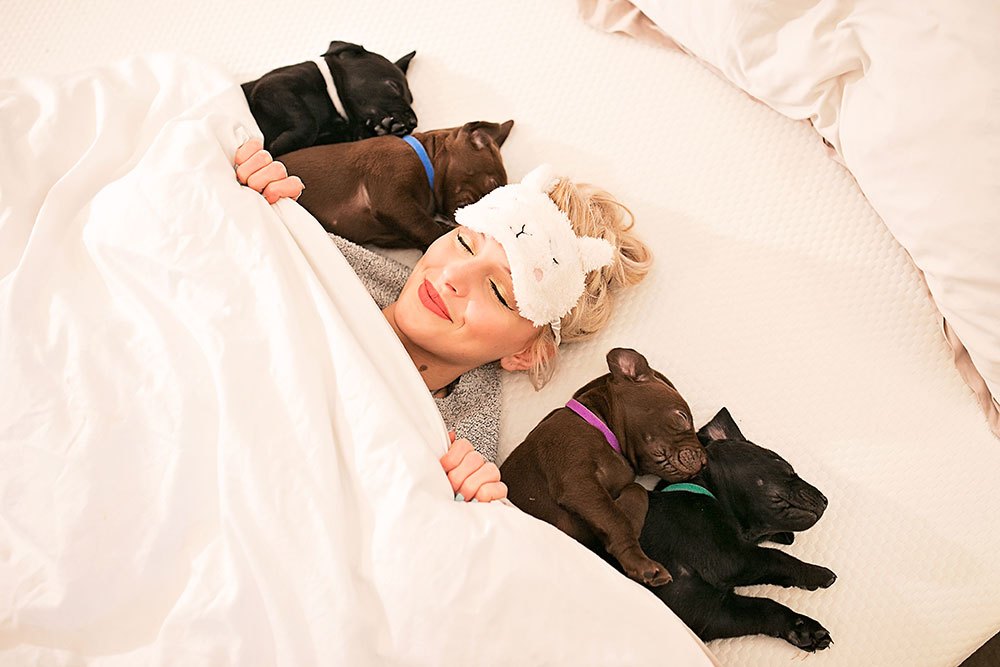
Tired? Train Yourself to Get to Sleep Earlier!
Share
If you’ve had a schedule change that requires you to get up earlier or if you’re just feeling worn down from not getting enough sleep, it might be time to get into bed a bit earlier. Easier said than done, right? Maybe not!
With a little advance planning, you can get yourself off to dreamland earlier and quicker than you ever thought was possible. Here’s how.
Set a Bedtime Curfew: Yes, you read that right – no matter what age you might be! Creating a sleep schedule (and sticking with it) is the surest way to cashing in on the benefits of getting more quality sack time by getting to bed earlier.
Your first step is to choose the right bedtime for yourself. Your goal is to get 8 hours of sleep, so set yourself up for success by choosing a time to turn in that will give you the amount of sleep you need, while taking into account how long it takes you to get to sleep. For example, if you need to be up at 6 a.m. and you know that it takes you at least 30 minutes to get to sleep, your bedtime curfew should be no later than 9:30 p.m.
Quick tip: Try bumping your bedtime up by small increments when starting out. Think 15 minutes in week one, 30 minutes in week two, etc. This will give you a higher chance of success, and lead to less tossing and turning, or needing to count sheep.
Move Your Workouts Up: Hitting the gym is a great way to stay in shape and lead a healthy lifestyle, but it can get your endorphin levels and heart rate so high that it can lead to sleeplessness. To avoid that issue, make sure that your workouts are scheduled at least 4 hours before bedtime. Exercise is a very good thing, but only when it’s not wreaking havoc on your ability to relax and drift off later in the evening.
Ditch Sneaky Stimulants: Caffeine doesn’t come in just coffee! To make sure that you can get to sleep at your earlier bedtime, make sure to avoid any stimulating substance, such as chocolate, nicotine, and alcohol. Be sure to check the packaging of any food or beverages that you’re going to eat at least 4 hours before bed to ensure that it’s free of caffeine. There are even some over-the-counter pain relievers that contain stimulants, which should also be avoided in order to avoid interferences with your ability to get to sleep.
Reschedule Your Rituals: Prep yourself for bed at least an hour before your bedtime curfew. This helps you to downshift into a more relaxed state and get your mind and body ready for bed. Move brushing your teeth, washing your face, and putting on your PJS to an hour before you actually crawl between the sheets, and you’ll find yourself ready for bed much earlier than usual.
Give Yourself Reminders: Your smartphone can come in very handy when you’re trying to get to bed earlier. Set yourself reminders or alerts when bedtime is approaching, in order to let you know that you need to stop catching up on work or chores, and start getting yourself in a more relaxed state of mind. When your bedtime alerts go off, switch from answering emails or doing the dishes to reading a book, doing some light yoga, or taking a warm bath. You’ll find yourself in a much more sleepy place, and much less likely to have trouble getting to sleep!
